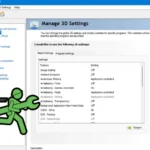It is no secret that the contemporary digital horizon does not admit a healthy cyber-space life without one controlling own data online. If you have ever Googled yourself, you know what you found might have even frightened or upset you. There is some relief in a more positive stance that something can be done to have, delete, or attain fewer search contents of your personal properties. This guide, therefore, goes ahead to explain why a person would be keen on deleting personal data and the dangers of letting the data remain open. In addition, it gives a sequence of simple steps which illustrate how this can be achieved.
Understanding Google Search Results
Internet research is something that can help us dig up a lot of information about a person and as such it is true that even with minimal information one can find out several useful details. One example is how to run a search of a person’s chances can be done if the following search terms are within an enclos. It could be social networking sites or blogs, and it can be quite likely that photos, articles and chats will come up as well.
Refined Searches
Depending on the availability of appropriate place or professional cohesion, output can be made more precise pertaining to the information. One is perplexed on how quickly these pieces of information come together to form a more comprehensive view of one’s self which even touches on their likes and loyalties.
The Risks of Exposed Personal Information
Sharing your personal details online can make you vulnerable to a considerable amount of risk especially when it comes to social engineering threats. One of the things that have made data breaches much easier to be conducted is the fallibility of human beings. A significant number of individuals have been known to understand and kneel before like attacks, such as pretexting and phishing.
Types of Social Engineering Attacks
- Phishing: Deceptive emails that trick individuals into revealing sensitive information.
- Pretexting: Attackers create false narratives to convince victims to disclose private data.
- Business Email Compromise (BEC): Fraudulent emails impersonating company executives to trick employees into transferring funds.
Statistics on Data Breaches
Data breaches are common and often occur because of the mismanagement of the information that is normally publicly accessible. Always remember, just because one has put their personal information online does not mean that they are safe.
Managing Your Data with Google
In appreciation of the need for privacy, Google has put in place some tools to assist individuals in managing their online information. One such feature is “Results about you,” that enables users to hide and manage what personal data will appear in a search output.
How to Use “Results About You”
On Desktop:
- Log into your Google account.
- Click on your profile avatar and select “Manage your Google Account.”
- Access “Data and Privacy,” then navigate to “My Activity.”
- Locate “Results about you” and click “Manage results about you.”
- Click “Get Started” or go to “Settings” and enter the information you wish to track (e.g., phone numbers, addresses).
- Set up notifications for any new results.
On Mobile:
- Open the Google App and tap your profile avatar.
- Find the option for “Results about you” in the menu.
- Follow similar steps as the desktop version.
Limitations
Note that “Results about you” may not be available in all regions, so be sure to check applicability in your area.
Requesting the Removal of Search Results
If you discover harmful search results that contain sensitive information (such as email addresses or physical addresses), you can request their removal.
Submission Process
- Fill out the removal request form provided by Google.
- Provide as much detail as required; if something isn’t clear, Google may contact you for additional clarification.
Criteria for Removal
Certain types of information, such as login credentials or deeply personal data, are typically prioritized for removal.
The Bigger Picture: Privacy and Security
While some may feel comfortable with their information available online, being privacy-conscious is increasingly important. Even public figures should consider what data they choose to make public.
Limiting Online Presence
It is possible that you will improve your security and gain confidence even if you take a step further to help control how the personal information is being put out there. Recognizing and appreciating potential threats is definitely better than ignorance.
Conclusion
It is important to appreciate just which of your public profile information is available, and engaging in measures to prevent this as much as possible can help in bettering your safety and security statuses in the internet. This can be achieved by the use of tools such as Google’s “Results from/about you,” submitting removal requests where necessary so that one authority is able to manage one’s profile and protect him or herself against harm. Always remember that it’s all about seeking information and being watchful whenever necessary to remain private all the time within the digital landscapes of today.






